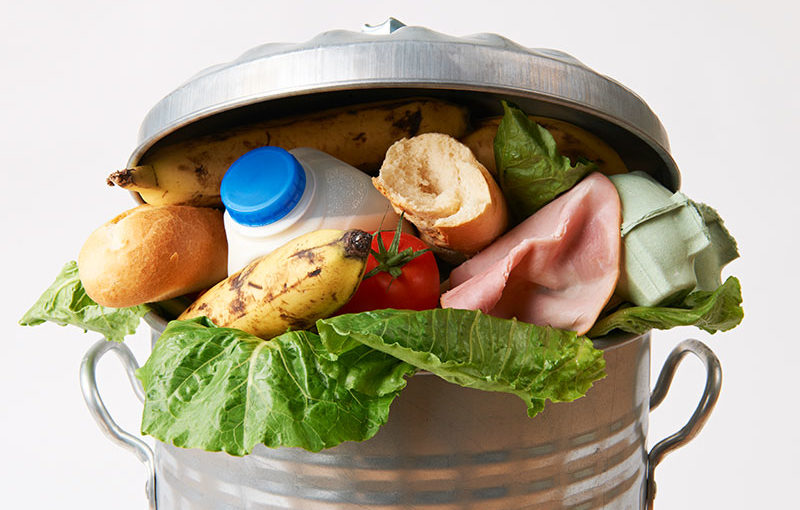Over the past few months, I’ve noticed with increased frequency outdoor ads imploring Singaporeans to stop food waste. The National Environment Agency of Singapore (NEA) introduced this national campaign in 2015 to encourage smarter food purchase, storage, and preparation habits.
It’s the result of a 2014 study commissioned together with the Agri-Food & Veterinary Authority of Singapore (AVA), which found that most consumers threw food out due to their expiration dates, as well as food that looked or smelled bad.
In fact, according to the NEA, as of 2018, Singapore had experienced a 40 per cent increase in food waste over the past 10 years. Singapore disposed of 676,800 tons of food waste in 2017 alone. Putting that into perspective that translates to roughly:
- 12.1M Cisco UCSC-BASE-M2-C460 Servers or
- 9,668 Merlion statues or
- 423 Singapore Flyers
I don’t know about you, but I personally feel a tinge of remorse when I discard uneaten food. If I could, I would adopt a nose-to-tail way of eating. But that’s a sustainability conversation for another season (probably after the post-holidays binge).
Waste not, want not
Why would people would buy things only to discard them later without ever using or consuming them? It’s a good question and I’ve seen these bad habits not only in our food markets but carried over in the business markets, as well.
Maybe it’s human nature to buffer against our needs and to oversupply rather than risk falling short of what’s needed. At Curvature, I’ve seen this happen with IT equipment. Companies will buy and overstock server equipment, only to leave it unused, collecting dust.
With AI, IoT, robotic, and other high-concept technologies being explored and deployed what feels like daily it can seem like there’s always new things to purchase to be “prepared” for. In reality many of these technologies are probably still in their infancy. But from the way technologists speak about them, it can feel like we’re a sneeze away from asking the computer for an Earl Grey tea.
This world isn’t true. Not yet, anyway and probably not for longer than we think.
Like any new technology or great revolution, it’ll take time. Just as it took years upon years for cloud computing and LTE to arrive–far longer than prognosticators will have you believe–it will take time for these emerging technologies, so often talked about as “the next big thing” to arrive.
Despite these lessons, businesses today are galloping towards this innovation horizon faster than ever before. It makes sense why they would do so; the faster we think we’re moving towards its horizon the more the road to innovation continues to stretch out. CIOs today find themselves staring into the fiery horizon of maintenance contracts, upgrade cycles, and business innovation. And although may appear in the distance, the heat generated from these conversations is very real.
Are you being pressured to buy something new that would ostensibly support new kinds of workloads even with older equipment still working and stocked in your store rooms? Are you throwing out good hardware simply because it’s sporting an “end of life” tag?
We know food is often thrown out before it’s actually expired and I’ve seen this happen with IT hardware as well. But even with food, sell-by, use-by, and best-buy mean very different things. Not understanding the nuances of expirations when it comes to equipment can lead to similar wasting of resources. Definitely something to think about.
There’s also the double indemnity of hardware disposal. Unlike food, throwing out old equipment can sometimes be more dangerous than keeping it. Afterall, if it is time to dispose of older hardware, how do you properly account for the bits and bytes in the hardware and not compromise your company’s trade secrets?
Well, you can start by asking the right questions:
- How is your hardware being disposed of? Where exactly is it going?
- Is the vendor using sustainable methods for disposal?
- Can your hardware and data be traced back to your organization?
- Should you directly junk your equipment in a local landfill?
- Is it possible to recycle it or resell it?
These are all good questions to ask if–and only if–you really are sure you’ve squeezed as much use you can out of your hardware in alignment with your organization’s needs. Finding a vendor versed in IT Asset Disposition (ITAD) can also help answer some of these questions.
What we throw into the trash says a lot about our attitudes, our sense of liability, and the approach we take in all aspects of our lives, including how we treat corporate budgets, and how we measure business innovation and success.
At the end of the day what it all comes down to is responsibility, as both a corporate citizen and a citizen of the world. Waste is waste.
Let me know what you think.



